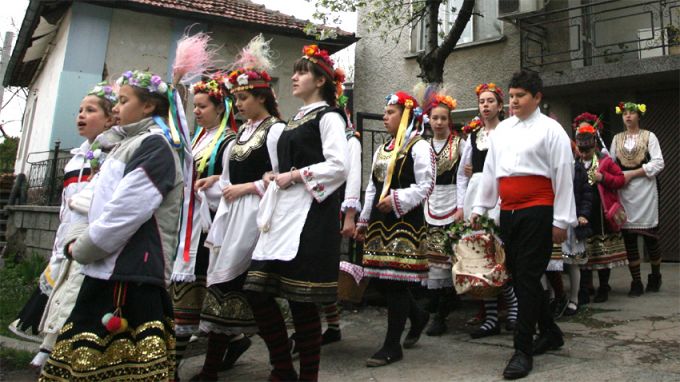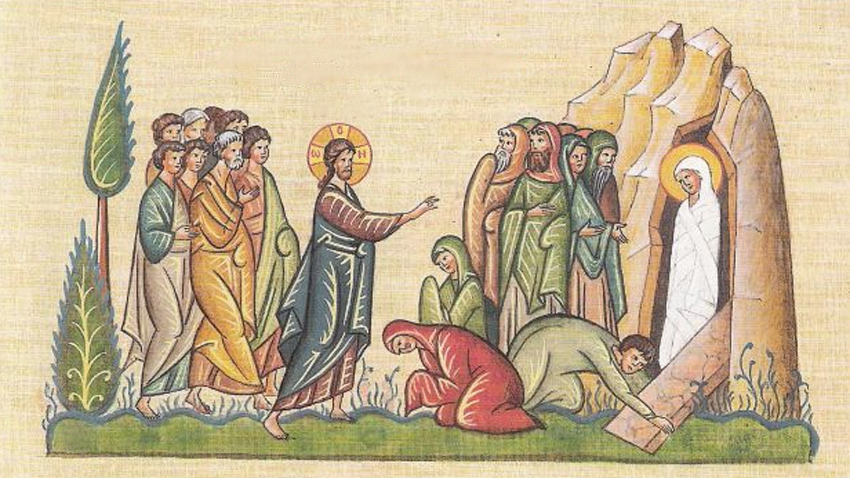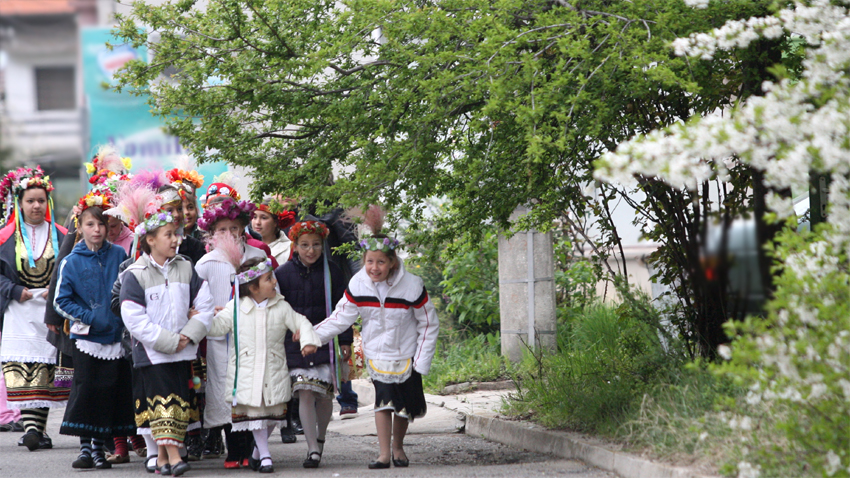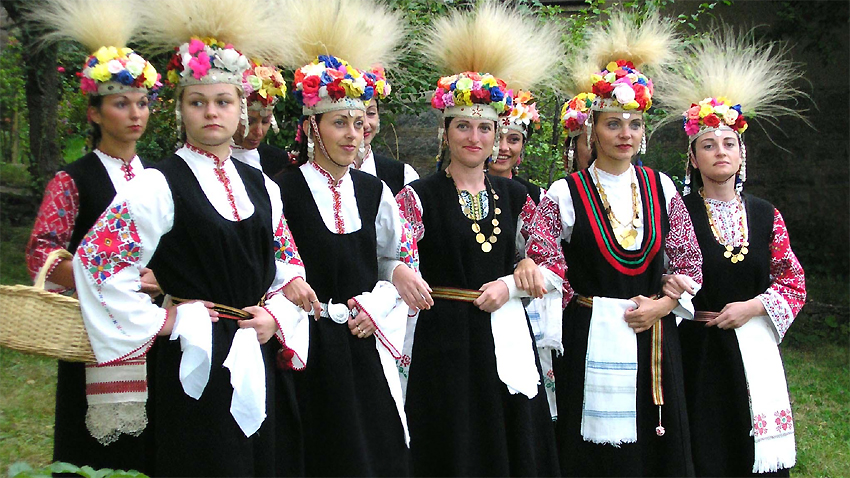 3
3
 “Lazarus, come out!” Christ spoke to his friend and the miraculous resurrection took place. A day before Palm Sunday the church marks Lazarus Saturday. In Bulgarian folklore this holiday is associated with spring as a symbol of revival and resurrection and focuses on youth, the awakening of nature and the new beginning.
“Lazarus, come out!” Christ spoke to his friend and the miraculous resurrection took place. A day before Palm Sunday the church marks Lazarus Saturday. In Bulgarian folklore this holiday is associated with spring as a symbol of revival and resurrection and focuses on youth, the awakening of nature and the new beginning.
“Lazarus, do you feel joy that spring has come?” the lyrics of a folk song go. Such folk songs also describe spring and the awakening of nature. Listen next to a song performed by Galina Durmushliiska that brings us the image of a young woman picking flowers in order to put them on her child’s hat.

The Bulgarian tradition of ‘lazaruvane’ is one of big importance for the social inclusion of young girls. It is believed that a girl who has not participated in the ritual would not get married. Moreover, such a girl could be kidnapped by a mythological zmey who could take her for a bride. On Lazarus Saturday groups of young girls go across villages, dancing and singing and people believe the ritual brings them health and prosperity. Girls start studying the songs in the middle of the Easter Lent. Some of the lyrics are actually well-wishings for the girls participating in the ritual. They promise Lazarus gifts if next year they give birth to a child.
There are Lazarus Saturday folklore songs dedicated to each family member, as well as to various occupations, to gardens and flowers. If in a visited house there was a woman who was not engaged yet, songs wishing her to find a husband soon are sung.
“Lazarus, they told me there was a beautiful lass in this home. Let us see her and let her get engaged by Easter and married by St. George’s Day”

Hosts give the Lazarus girls white eggs and money. The girls would later split the money, while the eggs will be coloured for Easter.
Making a full circle the girls always return to the place their tour started. They sing and dance during the whole time and separate in the evening to gather the next day for another premarital ritual called ‘kumichene.’

English: Alexander Markov
The Roma community in Bulgaria is celebrating Vasilyevden /or Vasilitsa, Bango Vasili (literally the Lame Vasil)/, also known as the Roma New Year , reports the Amalipe Foundation. The Roma New Year combining in its traditions Christmas with St...
Today is Babinden (Midwives' Day) - one of the most beloved and authentic Bulgarian holidays deeply rooted in local folk tradition . Celebrated on 8 January in the new style calendar and January 21 in the old style, it is dedicated to the women who used..
On Ivanovden, the village of Alvanovo (Northeastern Bulgaria) observes the custom called "Bathing the Sons-in-Law". The ritual is performed for health and prosperity of young couples who got married in the past year, reported BTA, referring to Valya..

+359 2 9336 661
